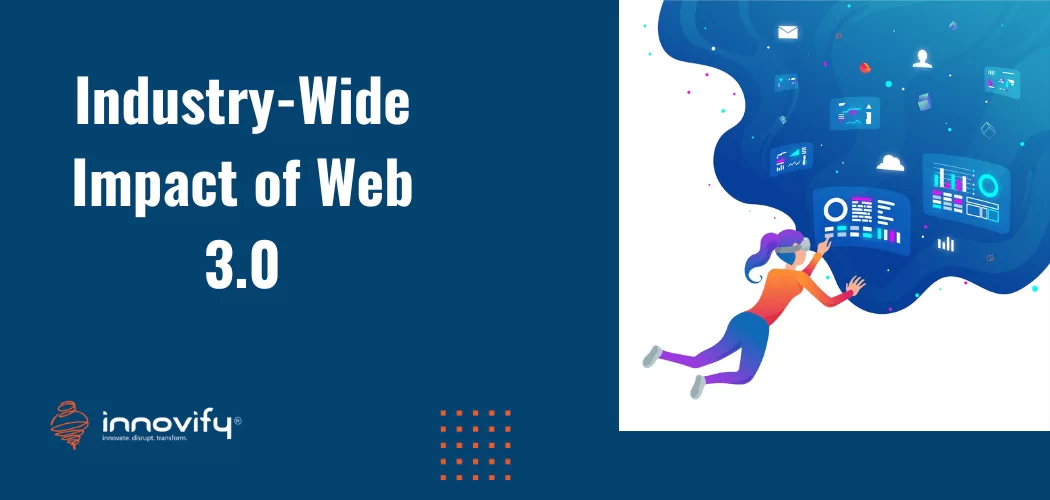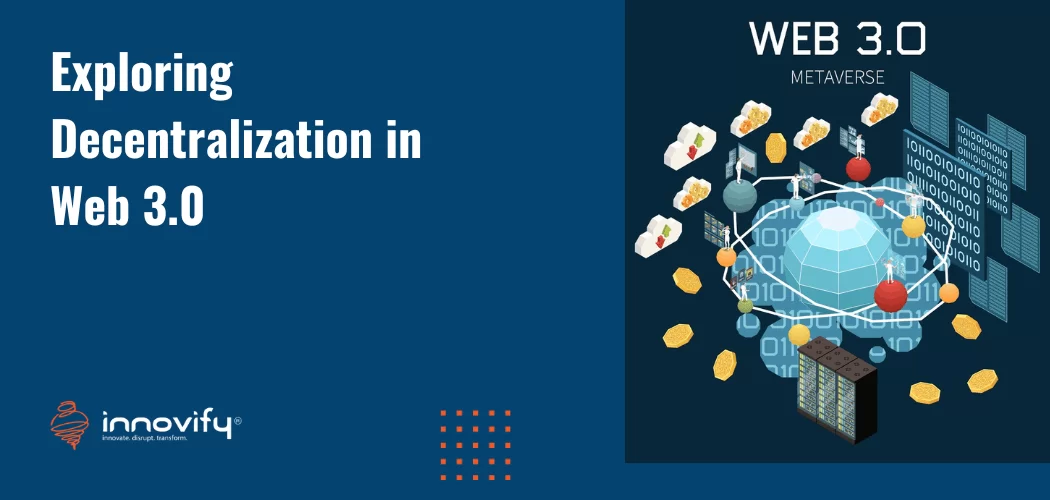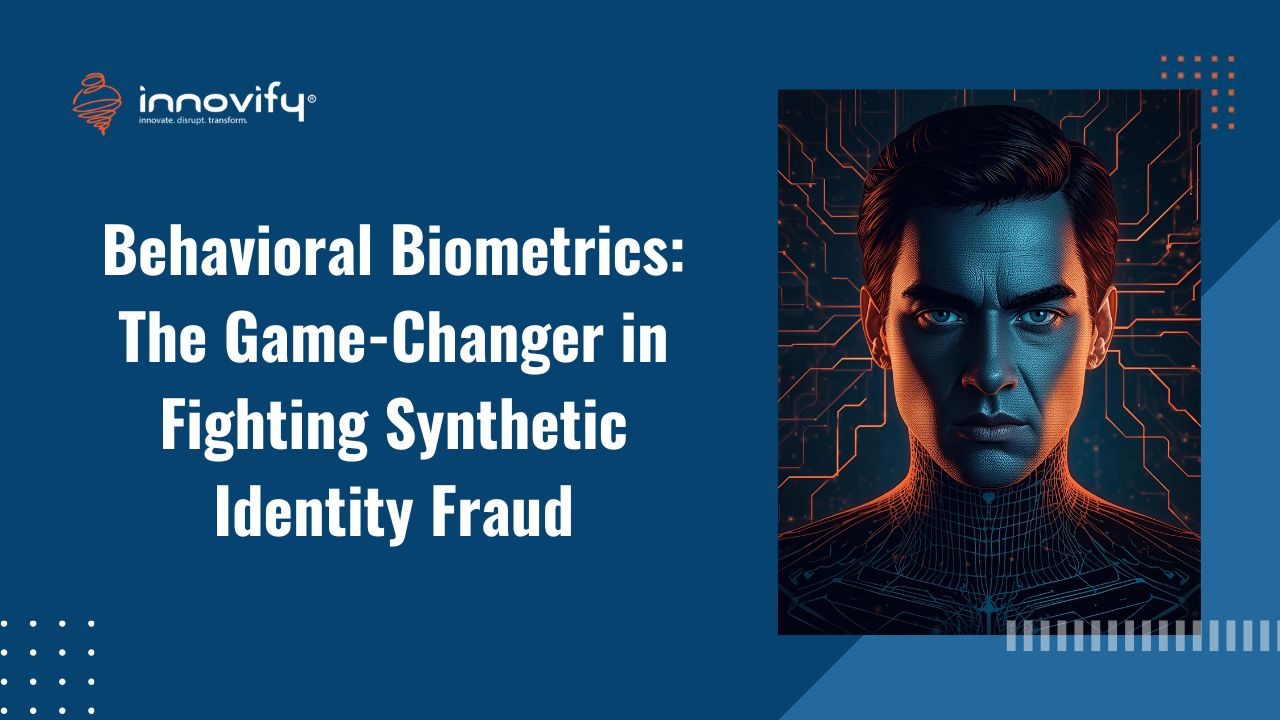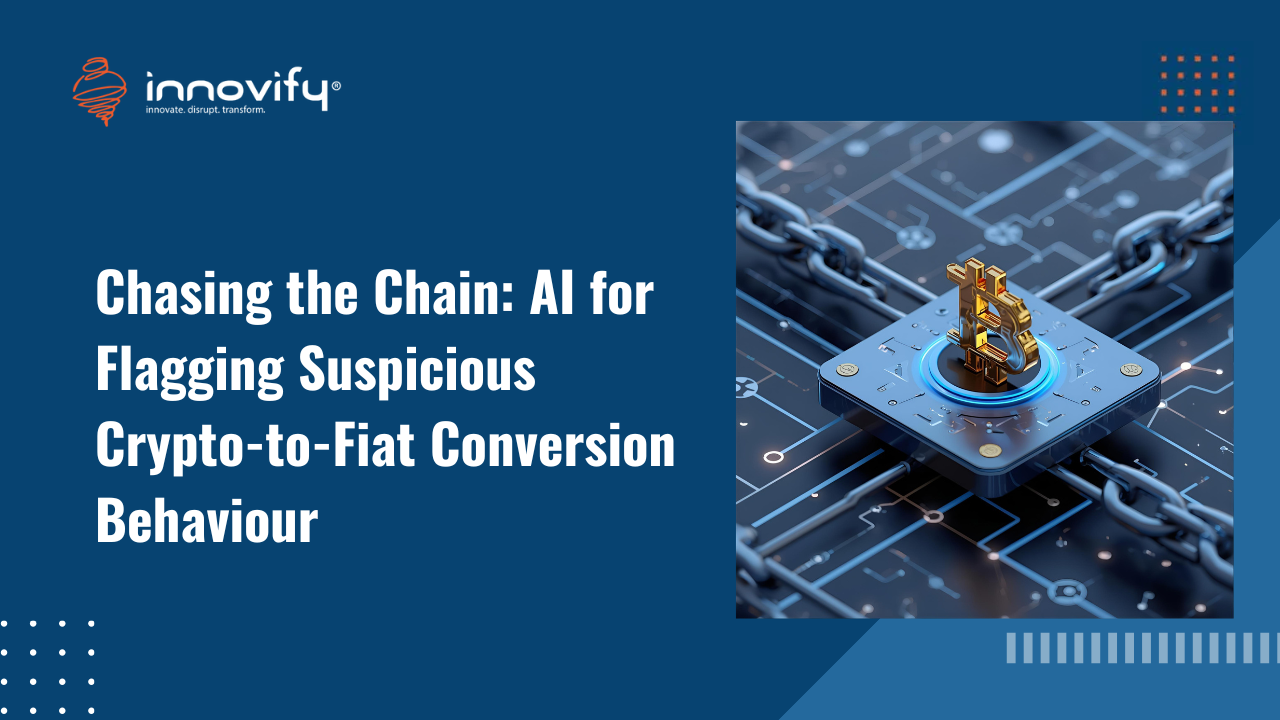AI/ML
Web 3.0: The Dawn of Decentralization in the Digital Age
Welcome to the dawn of a new digital era: Web 3.0, where decentralization takes center stage. Imagine a world where you have more control over your data, privacy is prioritized, and the internet empowers you like never before. In this exciting realm, Web 3.0 reshapes the digital landscape, putting power back into the hands of individuals. Get ready to witness a revolution where innovation and personal freedom twist as Web 3.0 opens the doors to a future full of limitless possibilities. Join us on this transformative journey as we embrace the dawn of Web 3.0 and experience a digital age that is truly for everyone.
The Evolution of the Web: Exploring Decentralization in Web 3.0
In the era of Web 3.0, decentralization has emerged as a fundamental concept, revolutionizing the digital landscape. Regarding decentralization, it refers to the distribution of power, control, and decision-making across a network or system rather than relying on a central authority.
- Web 3.0 represents a paradigm shift from the centralized architecture of Web 2.0. Web 3.0 empowers individuals and communities, allowing them greater control over their data, digital identities, and interactions. The shift towards decentralization in Web 3.0 is driven by various factors, including:Trust and Transparency: Decentralized Web 3.0 systems leverage technologies like blockchain to create transparent and tamper-proof records, enhancing trust and eliminating the need for intermediaries.
- Security and Resilience: By distributing data and processing power across a network of nodes, Web 3.0 decentralized systems mitigate the risk of single failure points, making them more resilient to attacks and system failures.
- User Empowerment: Decentralization in Web 3.0 authorizes users by giving them possession or control over their data, privacy, and digital assets. It enables individuals to participate in decision-making processes and enjoy greater autonomy.
According to Grand View Research, Web 3.0 blockchain industry is experiencing remarkable growth due to increasing demand for data privacy, advancements in internet technology, the rise of digital assets, and the expanding usage of connected devices.
The global Web 3.0 blockchain market reached a notable size of USD 1.73 billion in 2022, showing no signs of slowing down. Experts project a remarkable compound annual growth rate (CAGR) of 47.1% from 2023 to 2030.
The Building Blocks of Decentralization: Understanding the Key Features and Principles
Decentralized systems are characterized by several key features and principles that differentiate them from centralized counterparts:
- Peer-to-Peer Architecture: Decentralized systems facilitate direct participant interactions, eliminating the need for intermediaries. This peer-to-peer architecture promotes efficiency, reduces costs, and enhances privacy.
- Distributed Consensus: Decentralized systems employ mechanisms like consensus algorithms to agree on the system’s state. By achieving consensus across multiple nodes, decentralized systems ensure the integrity and immutability of data.
- Data Sovereignty: Decentralized systems prioritize data ownership and control, allowing individuals to retain ownership of their data and decide how it is accessed, shared, and utilized. This principle emphasizes privacy and gives users more agency over their digital footprint.
Blockchain Revolution: Unveiling the Role of Blockchain Technology in Web 3.0
In the ever-evolving landscape of Web 3.0, a digital revolution is underway, propelled by the game-changing force known as blockchain technology. Brace yourself as we uncover blockchain’s transformative role in shaping the decentralized web’s future. Get ready to witness a symphony of trust, transparency, and empowerment like never before.
1. Distributed Consensus and Immutable Ledgers
Blockchain technology in Web 3.0 leverages distributed consensus mechanisms to establish agreement among network participants without relying on a central authority. Consensus algorithms such as proof-of-work (PoW) and proof-of-stake (PoS) enable decentralized validation and transaction verification, ensuring the network’s integrity and security.
Tokenization and Interoperability
Blockchain technology enables tokenizing physical and digital assets by representing them as unique digital tokens on the blockchain. These tokens can be freely exchanged, facilitating frictionless transactions and unlocking new possibilities for asset ownership, fractionalization, and liquidity. Interoperability protocols such as the Ethereum Virtual Machine (EVM) and cross-chain bridges enable seamless communication and value exchange between blockchain networks, fostering an interconnected ecosystem of decentralized applications (DApps) and services.
Enhanced Security and Privacy
Blockchain technology provides enhanced security and privacy features crucial for Web 3.0. The use of cryptographic techniques, such as public-private key pairs, ensures the integrity and confidentiality of data. Immutability, achieved through the consensus mechanisms of blockchain, safeguards against tampering or unauthorized modifications.
Automating Trust: Understanding the Role of Smart Contracts in Web 3.0
Smart contracts are a fundamental component of Web 3.0, revolutionizing how agreements are decentralized and executed. Smart contracts are self-executing agreements written in code and deployed on a blockchain. They automatically enforce the terms and conditions of a deal without the need for intermediaries. Key features of smart contracts include:
- Transparency: Smart contracts are stored on a transparent and immutable blockchain, allowing all participants to view and verify the contract’s code and transactions.
- Trustlessness: Smart contracts leverage cryptographic algorithms and consensus mechanisms to assure the integrity and security of the agreement, eliminating the need for trust in intermediaries.
- Immutability: Smart contracts cannot be altered or tampered with once deployed on the blockchain, providing a reliable and tamper-proof record of all interactions.
The Rise of dApps: Exploring the Impact of Decentralized Applications in the Digital Landscape
Decentralized Applications (dApps) represent a crucial component of the Web 3.0 ecosystem, redefining how applications are built and operated. Unlike traditional applications that rely on centralized servers and intermediaries, dApps leverage blockchain technology and smart contracts to enable peer-to-peer interactions, transparent governance, and enhanced user control. Some key characteristics of dApps include:
- Decentralization: dApps operate on decentralized networks, ensuring that no single entity or central authority controls the application’s operations or data.
- Transparency: All transactions and operations within a dApp are recorded on a public blockchain, enabling participants to verify and audit the integrity of the application.
- Openness: dApps are typically open-source, allowing developers to collaborate, contribute, and build upon existing applications, fostering innovation and community-driven development.
Benefits of dApps in Web 3.0:
dApps offer numerous benefits in the Web 3.0 landscape, contributing to a more decentralized, secure, and inclusive digital environment. Here are some key benefits:
- Increased User Control: dApps gives users complete ownership and control over their data, digital assets, and identity. Participants retain sovereignty and can interact directly with the application, reducing reliance on third parties.
- Enhanced Security: Through the use of cryptographic techniques, smart contracts, and decentralized networks, dApps provide a more secure environment compared to centralized counterparts. The immutability of the blockchain and consensus mechanisms mitigate the risk of data manipulation and unauthorized access.
- Transparent Governance: dApps leverage decentralized governance models, allowing participants to participate in decision-making processes actively. Transparent and auditable smart contracts provide a fair and accountable framework for governing the application’s operations.
Use Cases of Successful dApps and Their Impact:
- Decentralized Finance (DeFi): DeFi dApps has revolutionized the financial industry by enabling decentralized lending, borrowing, exchanges, and yield farming. These dApps provide financial services without relying on traditional intermediaries, offering greater accessibility, transparency, and inclusivity.
- Non-Fungible Tokens (NFTs): NFT dApps have gained significant traction, enabling the creation, ownership, and trading of unique digital assets like digital art, collectibles, plus virtual real estate. NFTs provide provenance, scarcity, and verifiable ownership, transforming the digital asset landscape.
- Gaming and Virtual Worlds: Gaming dApps and virtual worlds leverage blockchain technology to enable actual ownership of in-game assets, interoperability between different games, and provable fairness in gameplay. These dApps redefine the gaming experience and provide economic opportunities for players.
Redefining Trust and Security: Unleashing the Potential Benefits of Web 3.0
Web 3.0, considered the next evolution of the internet, brings with it a multitude of benefits that have the potential to revolutionize industries, empower individuals, and reshape the digital landscape.
1. Enhanced Security and Privacy
Web 3.0 introduces significant advancements in security and privacy compared to its centralized counterparts. Some key benefits include:
- Immutable Data
- Cryptographic Encryption
- User Control
2. Reduced Dependency on Intermediaries
Web 3.0 reduces reliance on intermediaries by enabling direct peer-to-peer interactions. Key benefits include:
- Disintermediation
- Transparent Governance
3. Empowerment of Individuals and Communities
Web 3.0 empowers individuals and communities by giving them greater control, ownership, and economic opportunities. Key benefits include:
- Digital Sovereignty
- Economic Inclusion
- Collaborative Communities
Exploring the Hurdles and Risks in Decentralized Systems
Decentralized systems, such as blockchain-based platforms, have gained significant attention for their potential to disrupt traditional centralized models. While they offer numerous benefits, including enhanced security, transparency, and resilience, they also present challenges and risks that must be carefully addressed. Let’s explore three key areas:
- Scalability and performance limitations
- Regulatory and legal concerns
- User adoption and User experience challenges
1. Scalability and Performance Limitations
One of the primary challenges faced by decentralized systems is scalability. As participants and transactions rise, these systems can experience significant performance limitations. Blockchain networks, for instance, often suffer from slow transaction processing speeds and high energy consumption.
2. Regulatory and Legal Concerns
The decentralized nature of blockchain and other decentralized systems often raises regulatory and legal concerns. The absence of a centralized authority overseeing transactions and activities can lead to ambiguity in legal frameworks. Government institutions and regulatory bodies may need help to define and enforce regulations, potentially creating uncertainties for businesses and users.
3. User Adoption and User Experience Challenges
Despite the promise of decentralized systems, achieving widespread user adoption remains a significant challenge. User experience often suffers due to complexities associated with interacting with decentralized platforms. Cryptocurrency wallets, for instance, can be intimidating for non-technical users, leading to adoption barriers.
Revolutionizing the Business Landscape: Exploring the Industry-Wide Impact of Web 3.0
Web 3.0, the next phase of Internet development, is set to revolutionize various industries and sectors as the future of tech development lies in Web 3.0 frameworks. With its decentralized, trustless, and transparent nature, Web 3.0 technologies, such as blockchain and decentralized applications (dApps), have the potential to reshape traditional systems.

1. Finance and Banking
Web 3.0 is poised to disrupt the finance and banking industry by introducing decentralized financial (DeFi) systems. These systems leverage smart contracts on blockchain platforms to enable peer-to-peer transactions, automated financial services, and decentralized lending and borrowing. The impact of Web 3.0 on finance and banking includes:
- Financial Inclusion: Web 3.0 technologies allow individuals without reaching traditional banking services to participate in the global financial ecosystem, empowering the unbanked and underbanked populations.
- Transparency and Security: Blockchain-based financial systems provide enhanced transparency and security by eliminating intermediaries and ensuring tamper-proof transaction records.
- Programmable Money: Smart contracts enable programmable money, allowing for automated financial agreements, decentralized governance, and the creation of complex financial instruments.
2. Supply Chain and Logistics
Web 3.0 brings unprecedented transparency and traceability to supply chain and logistics operations. By leveraging blockchain technology, decentralized systems offer the following advantages:
- Supply Chain Visibility: Blockchain-based supply chain solutions enable real-time tracking and tracing of goods, ensuring transparency and reducing fraud or counterfeiting risks.
- Smart Contracts and Automation: Smart contracts facilitate automated supply chain operations, such as automatic payment settlements, smart inventory management, and streamlined logistics coordination.
- Trust and Collaboration: Web 3.0 enables secure and trustless collaboration between multiple stakeholders in the supply chain, including manufacturers, distributors, retailers, and consumers.
3. Healthcare and Medical Records
Web 3.0 can revolutionize healthcare by improving data interoperability, patient privacy, and medical research. The impact of Web 3.0 on healthcare and medical records includes:
- Secure and Interoperable Data Exchange: Blockchain-based systems enable the secure sharing of medical records, improving interoperability between healthcare providers and enhancing patient care coordination.
- Patient Ownership of Data: Web 3.0 empowers patients to control their medical data, granting them ownership and the ability to share it firmly with healthcare providers or researchers while ensuring privacy and consent.
- Clinical Trials and Research: Decentralized platforms facilitate transparent and verifiable clinical trials, enhancing data integrity, accelerating medical research, and incentivizing patient participation.
3. Social Media and Content Creation
Web 3.0 transforms social media and content creation by giving users more data control, rewarding content creators, and fostering community governance. The impact of Web 3.0 on social media includes:
- User Data Ownership and Privacy: Web 3.0 platforms allow users to possess or control their data, reducing reliance on centralized platforms that monetize user information.
- Content Monetization: Blockchain-based systems introduce micropayments and tokenization, allowing content creators to be directly rewarded for their contributions and eliminating intermediaries.
- Community Governance: Decentralized social media platforms incorporate community-based decision-making mechanisms, empowering users to participate in platform governance and content moderation.
Paving the Way for Web 3.0: Future Implications and Possibilities
Web 3.0, with its decentralized, trustless, and transparent nature, is poised to bring about significant transformations in various aspects of society and the economy. As we look toward the future, the implications of Web 3.0 extend beyond technological advancements.
1. Opportunities for Innovation and Entrepreneurship
Web 3.0 opens up exciting opportunities for innovation and entrepreneurship in several ways:
- Decentralized Applications (dApps): Web 3.0 allows developers to create decentralized applications on blockchain platforms, enabling new business models and services. Entrepreneurs can leverage the capabilities of smart contracts and decentralized protocols to build innovative solutions across various industries.
- Tokenization and Crowdfunding: Web 3.0 enables tokenization, where digital tokens on the blockchain can represent assets and services. This facilitates new fundraising models through initial coin offerings (ICOs), initial decentralized offerings (IDOs), and decentralized finance (DeFi) platforms, enabling entrepreneurs to access capital and engage with a global pool of investors.
2. Potential Societal and Economic Transformations
Web 3.0 can bring about significant societal and economic transformations:
- Decentralization of Power: Web 3.0 challenges centralized power structures in many industries and sectors. Decentralized systems, such as blockchain, distribute power among participants, reducing reliance on intermediaries and enabling peer-to-peer interactions. This shift can empower individuals and communities, promoting equality and inclusivity.
- Democratization of Finance: Web 3.0 introduces decentralized finance (DeFi), allowing individuals to access financial services traditionally limited to centralized institutions. Through DeFi platforms, people can participate in lending, borrowing, and investment activities without intermediaries, potentially increasing financial inclusivity and reducing barriers to entry.
- Data Ownership and Privacy: Web 3.0 empowers individuals with greater control over their data. Individuals can own and manage their data through decentralized identity systems and secure data storage on the blockchain, choosing when and how it is shared. This shift promotes privacy and puts individuals in charge of their digital identities.
3. A Shift in Power Dynamics and Governance Models
Web 3.0 has the potential to reshape power dynamics and governance models:
- Distributed Governance: Web 3.0 introduces decentralized governance models, enabling community-driven decision-making processes. Blockchain-based platforms allow participants to have a say in developing governance protocols, fostering transparency, accountability, and inclusivity.
- Disintermediation of Authority: Web 3.0 challenges traditional centralized authorities and intermediaries. By eradicating the need for trusted third parties through smart contracts and decentralized systems, power is redistributed among participants. This disintermediation has the potential to create more equitable and transparent procedures.
- Collaborative Ecosystems: Web 3.0 fosters collaborative ecosystems where participants can collaborate, contribute, and benefit from the collective value created within the network. Peer-to-peer interactions, token economies, and decentralized governance models encourage cooperation and coordination, potentially leading to more sustainable and resilient systems.
Breaking the Chains: Web 3.0 Redefines the Rules of Digital Engagement
Innovify plays a vital role in the Web 3.0 landscape by assisting organizations in redefining their digital strategies and embracing the decentralized future. Their commitment to innovation, technical expertise, and user-centric design positions them as a valuable partner in navigating the evolving digital landscape and leveraging the opportunities presented by Web 3.0. With Innovify’s guidance, businesses can embrace the new rules of digital engagement and embark on a path of growth and success in the Web 3.0 era.
FAQs
Q1: Can Web 3.0 brings about complete decentralization?
Yes, Web 3.0 has the potential to bring about complete decentralization by leveraging technologies such as blockchain and distributed systems.
Q2: What is Web 3.0 decentralized Web?
Web 3.0, also known as the decentralized web, refers to the vision of a more open and user-centric internet where data is securely stored and controlled by individuals rather than centralized entities. It utilizes blockchain and distributed systems to enable greater privacy, data ownership, and peer-to-peer interactions.
Q3: Why is decentralization important in Web3?
Decentralization is crucial in Web3 because it empowers individuals with greater control over their data, enhances privacy, reduces reliance on central authorities, fosters innovation, and promotes a more transparent and resilient Internet ecosystem.
Q4: What is Web 3.0 known for?
Web 3.0 is known for its focus on decentralization, user empowerment, enhanced privacy, and utilizing technologies like blockchain and distributed systems. It aims to create a more open, secure, and user-centric internet experience.
Q5: Why is Web 3.0 crucial?
Web 3.0 is important because it can revolutionize the internet by offering enhanced privacy, data ownership, user empowerment, and decentralized applications. It aims to create a more transparent, secure, and inclusive digital ecosystem, fostering innovation and transforming how we interact and transact online.




